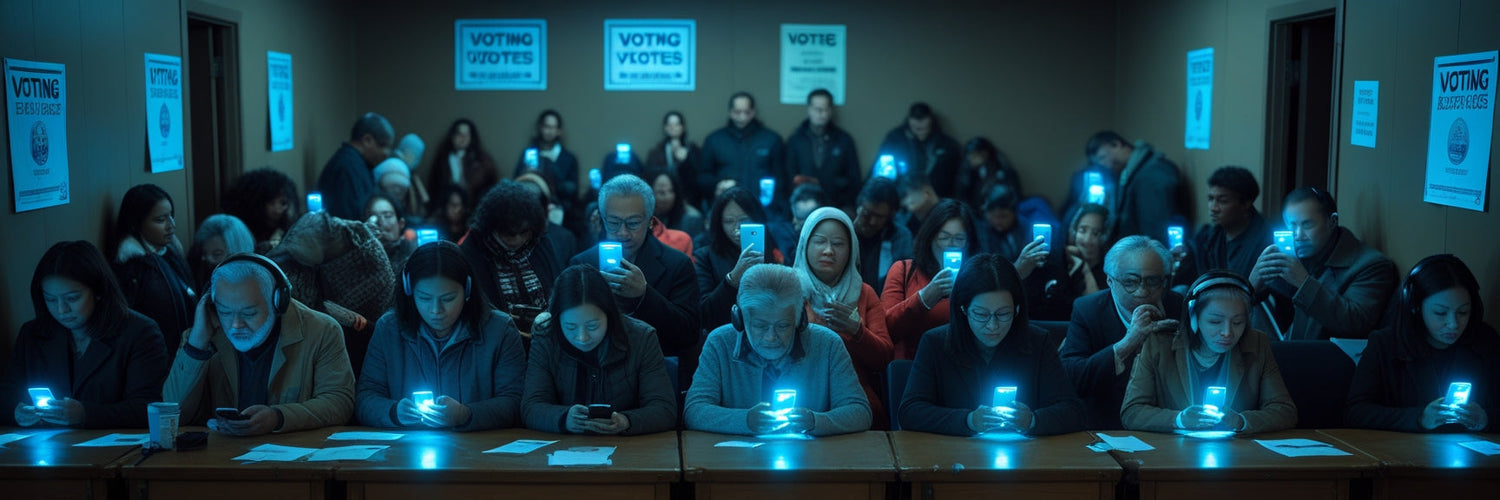Freedom Lost Without a Fight
In democratic societies, the erosion of liberty doesn’t always announce itself with violence or suppression. Sometimes, it arrives quietly—disguised as progress, stability, and care. Alexis de Tocqueville, the 19th-century French thinker and political observer, saw this danger clearly. His term for it was soft despotism, a form of subtle control that emerges not through force, but through comfort and dependency.
Unlike the overt tyranny of autocratic regimes, soft despotism works in the shadows of democratic systems. Elections still occur, laws are still passed, and institutions remain intact. But beneath this surface normalcy, a dangerous transformation unfolds: citizens slowly withdraw from active political life, content to let the state manage more and more of their daily existence. Governments, often with good intentions, expand their reach—not to dominate but to provide, to protect, to simplify. And in doing so, they gradually displace the individual’s responsibility to self-govern and to participate meaningfully in civic life.
The Slow Drift Toward Dependence
Tocqueville feared a world in which the government no longer tyrannized the body, but soothed the mind into passivity. In such a society, citizens don’t feel oppressed—they feel cared for. But this care comes at a cost. As policies and bureaucracies extend their influence into more aspects of life, individuals are relieved of decision-making, effort, and risk. What remains is a comfortable, regulated existence—but one that lacks the vitality of true freedom.
The danger is not that people will rise up in rebellion, but that they won’t rise at all. They will adapt. They will comply. And over time, they will lose the habit of freedom. Tocqueville warned that this passivity breeds a population that is no longer oppressed, but infantilized—dependent on the state not only for support, but for judgment. Liberty becomes less about personal agency and more about what the government allows within the safety of its growing boundaries.
Liberty Demands Responsibility
Tocqueville understood that freedom is not just a political structure—it’s a state of mind and a way of life. It requires attention, participation, and the constant effort of citizens to remain informed, engaged, and skeptical of unchecked authority. The most enduring democracies are not those that deliver the most comfort, but those whose citizens refuse to trade liberty for ease.
Soft despotism doesn’t arrive through edicts or crackdowns. It emerges through habits of convenience. When people stop questioning, stop voting, stop taking part in the difficult work of self-governance, freedom begins to lose its substance. The structures remain, but the spirit is gone.
The lesson Tocqueville leaves us is both sobering and hopeful. Freedom is not lost overnight—it is eroded by inattention. But it can also be renewed through effort. Civic engagement, education, public discourse, and the courage to resist paternalistic overreach can restore the sense of autonomy on which liberty depends.
The Price of Liberty Is Not Fear—It's Responsibility
Tocqueville’s warning is a call to vigilance in an age where comfort often takes priority over conscience. In modern democracies, the threat to liberty may not wear the face of a tyrant. It may look like convenience, safety, or even kindness. But if it replaces individual judgment with managed dependence, the result is the same.
Liberty survives only when people choose to live it. And that choice must be made not just at the ballot box, but in everyday life—in the willingness to ask hard questions, to demand transparency, and to take personal responsibility for the state of the society we share.





















































